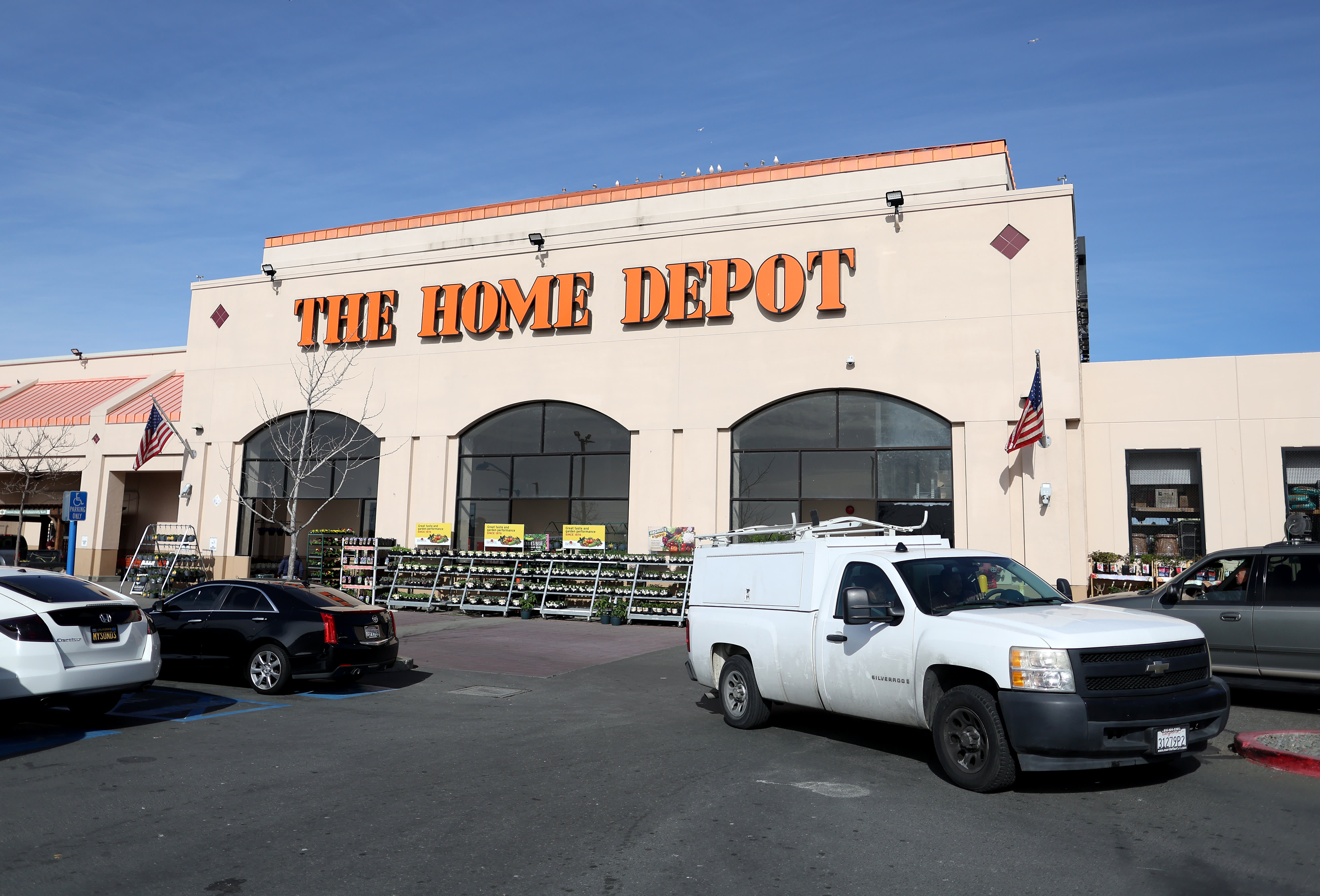
Home Depot on Thursday said it is acquiring SRS Distribution in an $18.25 billion deal, the latest and largest sign of its ambitions to drive sales by winning more business from contractors, roofers and other home professionals.
The home improvement retailer expects the acquisition to close this fiscal year, which ends in late January. It said it will finance the deal through cash on hand and debt.
Home Depot already draws half of its business from pros, while the other half comes from do-it-yourself customers. With the deal, the Atlanta-based company is making yet another push to gain the customers who tackle complex and lucrative construction jobs, particularly as homeowners pull back on DIY projects. That was one of the priorities that Home Depot leaders laid out for this year. It’s also why the company has been opening a growing network of distribution centers that can stock large quantities of items that pros need, such as lumber or shingles, and deliver them directly to a job site.
The acquisition is the largest in Home Depot’s history.
In an interview with CNBC, CEO Ted Decker described the deal as “a complementary accelerator” to its efforts to attract more pros. He said the deal increases Home Depot’s total addressable market by $50 billion.
SRS Distribution sells supplies to professionals in the landscaping, pool and roofing businesses. It’s owned by two private equity firms, Leonard Green & Partners and Berkshire Partners.
The McKinney, Texas-based company has approximately 11,000 employees and 760 branches across 47 states. It also has a fleet of 4,000 delivery trucks and a dedicated salesforce that caters to the home pros, Decker said.
The acquisition adds to other recent deals that the retailer has made in the pro space. They include the approximately $8 billion acquisition of HD Supply, a national distributor of maintenance, repair and operations products in the multifamily and hospitality markets, in 2020. Last year, it also made two other acquisitions for undisclosed amounts: International Designs Group, which owns Construction Resources, a distributor of surfaces, appliances and other products that sells to home pros; and Temco, an appliance delivery and installation company.
Decker said he’s confident the deal will get approved by federal regulators, even as they increase scrutiny of mergers and acquisitions.
“With the separate customer base, different channels, different purchase occasions, we feel good that this will go through,” he said.
The acquisition is expected to be dilutive to Home Depot’s earnings per share due to amortization, but accretive in terms of cash earnings per share in the first year after the deal closes.
Home Depot has leaned into the pro business as its growth stagnates. The retailer, a major beneficiary of pandemic trends, has dealt with moderating sales as consumers take on fewer home projects and spend more on grocery bills and experiences. Over the past few quarters, customers have bought fewer big-ticket items and tackled smaller, less pricey projects.
Decker said last month on an earnings call that Home Depot would focus on opening new stores, attracting more pro sales and trying to make customers’ shopping experience more seamless.
Home Depot plans to open a dozen new stores during the fiscal year. It recently announced it will open four distribution centers that help support sales to pros.
The acquisition comes after the home improvement retailer said last month that it expects slower sales trends to continue. It said it anticipates total sales for the full year will grow about 1%, including an additional week in the fiscal year. Yet it expects comparable sales, which take out the effect of store openings and closures and do not include the additional week, to drop by about 1%.
Home Depot had a total of 2,335 stores across the U.S., Mexico and Canada as of the end of the fiscal year in late January. It has about 465,000 employees.
As of Wednesday’s close, shares of Home Depot are up about 11% this year. That’s slightly ahead of the 10% gains of the S&P 500. Home Depot’s stock closed at $385.89 on Wednesday, bringing its market value to about $382 billion.